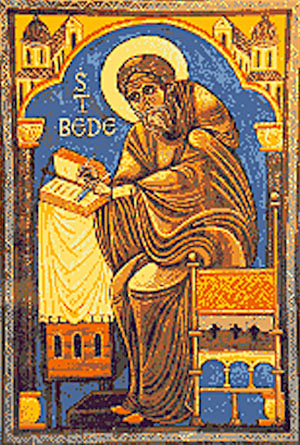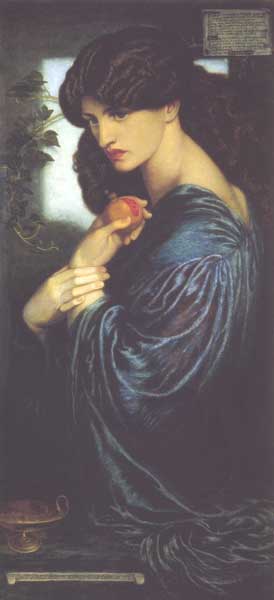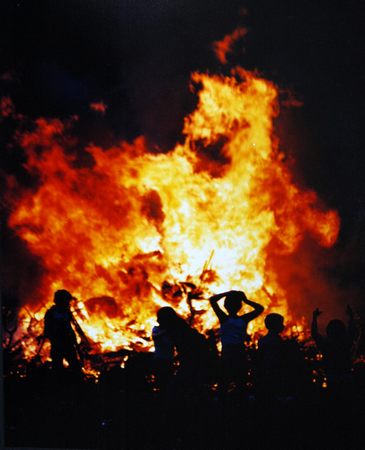The Pagan Origins of the Christian Easter Tradition
Easter time is for Christians one of the most Holy periods of the year, representing the crucifixion and resurrection of Christ. But there are those that believe the traditions celebrated have a history that pre-dates the period of Jesus, coming instead from earlier Pagan rituals.

It is generally accepted that the name Easter, as proposed by the 8th century scholar St. Bede in his book, De Ratione Temporum, is derived from the name of the Anglo-Saxon Teutonic mother goddess of spring and fertility, Eastre.

Eastre (Image Source)
A month corresponding to April was dedicated to her and the Anglo-Saxons held a festival in her honour on the day of the vernal equinox. During the festival, the rabbit was used as a symbol of fertility and eggs were painted with bright colours representing the sunlight of spring and often given as gifts or used in egg rolling contests.

Persephone (Image Source)
The ancient world has many examples of festivals to bring in spring with similar themes to the Christian tradition such as the Greek legend that tells of the return of Persephone, goddess of the earth, from the underworld symbolising the resurrection of life.

Around 200 B.C. mystery cults began to appear in Rome just as they had earlier in Greece. The most noteworthy was the Cybele cult who not only worshiped Cybele but also her lover, Attis (the older Tammuz, Osiris, Dionysus, or Orpheus under a new name).

Cybele and Attis (Image Source)
The god of ever-reviving vegetation, he was born of a virgin and he died and was reborn annually. The festival began as a day of blood on Black Friday and ended after three days with worshippers rejoicing over his resurrection.
Some other goddesses of the ancient world who had similar stories attached were;
- Aphrodite from ancient Cyprus
- Ashtoreth from ancient Israel
- Astarté from ancient Greece
- Demeter from Mycenae
- Hathor from ancient Egypt
- Ishtar from Assyria
- Kali, from India
- Ostara from Norway
However it is unlikely that the Christian festival of Easter is solely derived from the pagan rituals and probably includes a number of traditions. Christian scholars emphasis the relationship of Easter to the Jewish festival of Passover. Many early Christians were brought up in the Hebrew tradition and saw Easter as an added feature of Passover, celebrating the arrival of the Messiah, as foretold in the holy texts.

Wiccans and other modern-day Pagans continue to celebrate the Spring Equinox as one of their 8 yearly holy days. Their rituals are related primarily to fertility and to the balance of the day and night times. Where they can safely celebrate without fear of religious intolerance, they often incorporate a bonfire into their rituals, jumping over the dying embers to assure fertility of people and crops.




No comments:
Post a Comment